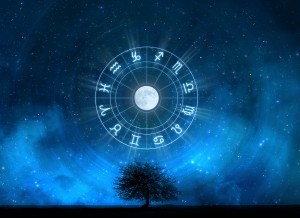The stars have a lot to tell us. Humans have used them as a map, a planting guide, and a calendar since the beginning of time.
Somehow, with modern technology, people are discounting the wisdom of the stars. Not us, though! We still believe they have a lot to teach us.
As does the practice of astrology. There are so many levels to the zodiac and birth charts, that it can be overwhelming.
To unpack that, let’s start from the beginning and look at the history of astrology.
Take the journey with us below.
The History of Astrology: A Timeline
Astrology, as it’s known today, started 32,000 years ago, around 30,000 to 10,000 BC (further referred to as BCE – before common era).
There are cave paintings, rock carvings, and bones marked with lunar phases from this time. Though this is too far back to have exact data, archeologists believe this was a coping mechanism.
In the chaotic world that these human ancestors lived, they didn’t have control over much. So, they used the stars and lunar phases as a source of understanding their place in the world.
Both in the literal and metaphysical sense. They’d use the stars as GPS when traveling (no annoying Siri voice here).
Though they didn’t understand why all these changes happened, such as the earth rotating, they took what the universe gave them. We admire our innovative ancestors for their way of living in the present.
3000 BCE
The Babylonian society was one of the first complex human systems we have evidence of. You probably studied their hanging gardens and irrigation systems in history class.
Along with being good gardeners, and perhaps they’re related, they charted the stars.
The oldest zodiac wheel that exists comes from our Babylonian friends. It dates back to 700 BCE and notates planets and houses.
The first horoscope chart dates A couple hundred years later, from 409 BCE. Remember, we’re in negative numbers time wise.
300 BCE to Common Era
Alexander the great conquered our gardening friends around 331 BCE. Eventually, these ancient discoveries and beliefs were expanded upon by the Greeks.
The Greeks, of all the people in history, really loved astrology and the study of the heavens.
In fact, we have a Greek philosopher to thank for the astrological terms we use today. Ptolemy published Tetrabiblos, which was the first book on astrology.
It was and is still highly revered. That went down in 140 AD (or, now referred to as CE – common era).
400 CE
After the fall of the Roman Empire, we lose track of the history of astrology a little bit. We know that the Arabs took over studying what the Greeks had laid out, but evidence from this time is sparse.
Middle Ages
Now is when astrology starts to get cooking. The middle ages were a time of exploration since people had some life basics figured out.
Now that people had time for luxuries like education, Astrology became highly studied. Cambridge University (1200) had chairs and classes on the star-studded subject.
Royal families and courts had their own astrological informants. It was a time where many people let the stars guide them.
We have Placidus to thank for figuring out the house division system we use today. It was around this time that Copernicus began to think the earth circled around the sun, not the other way around.
This wasn’t a popular thought since The Church was rising to power and this was an oppositional view.
The “Age of Reason” 1600-1700 CE
Now that the Protestant Reformation movement was in power, the skeptics came out in force. The church encourages throwing out old notions (like astrology) for new ones like rationalism.
That doesn’t mean that astrology isn’t rational, but the church didn’t think it was.
The Age of Enlightenment
In light of the technological and educational advances, people began to question more. In the late 1700s, Western European salon began to discuss individualism.
This was a reaction from the controlling arms of the church. Astrology gets a little lost here since they were dealing with some bigger psychological issues.
If you were an astrologer in this time, you worked in secret or at least quietly.
19th Century CE
Finally, we get back to people giving the stars credit. Carl Jung makes astrology surface again by referencing it in his psychology.
20 – 21 Century CE
It wasn’t until the 1920’s that newspapers began publishing horoscopes. These sun-based signs (the twelve zodiacs) gave 12 predictions for the whole population.
While the signs are helpful, we know now that it’s important to take other star information into consideration. Things like birth charts that note where the planets were at your birth are much more personalized.
There are calculators online to do your birth chart, but some experts prefer to do them by hand. This complicated task takes ten plus positions into consideration.
Astrology Now
In our opinion, it’s wise to take modern and ancient beliefs as true. Each one has something to teach us, even if you don’t truly believe it.
Unfortunately, the long history of astrology doesn’t impress many people anymore. They think lab-science is the only way to find true information.
You and I know that’s not true, why would we throw out thousands of years of work and never look back?
If you want help analyzing your star chart or need advice on how badly mercury is going to mess with us this time, call us.
We have some of the best psychics in the world listed on our site. We’re expecting you!


Speak Your Mind